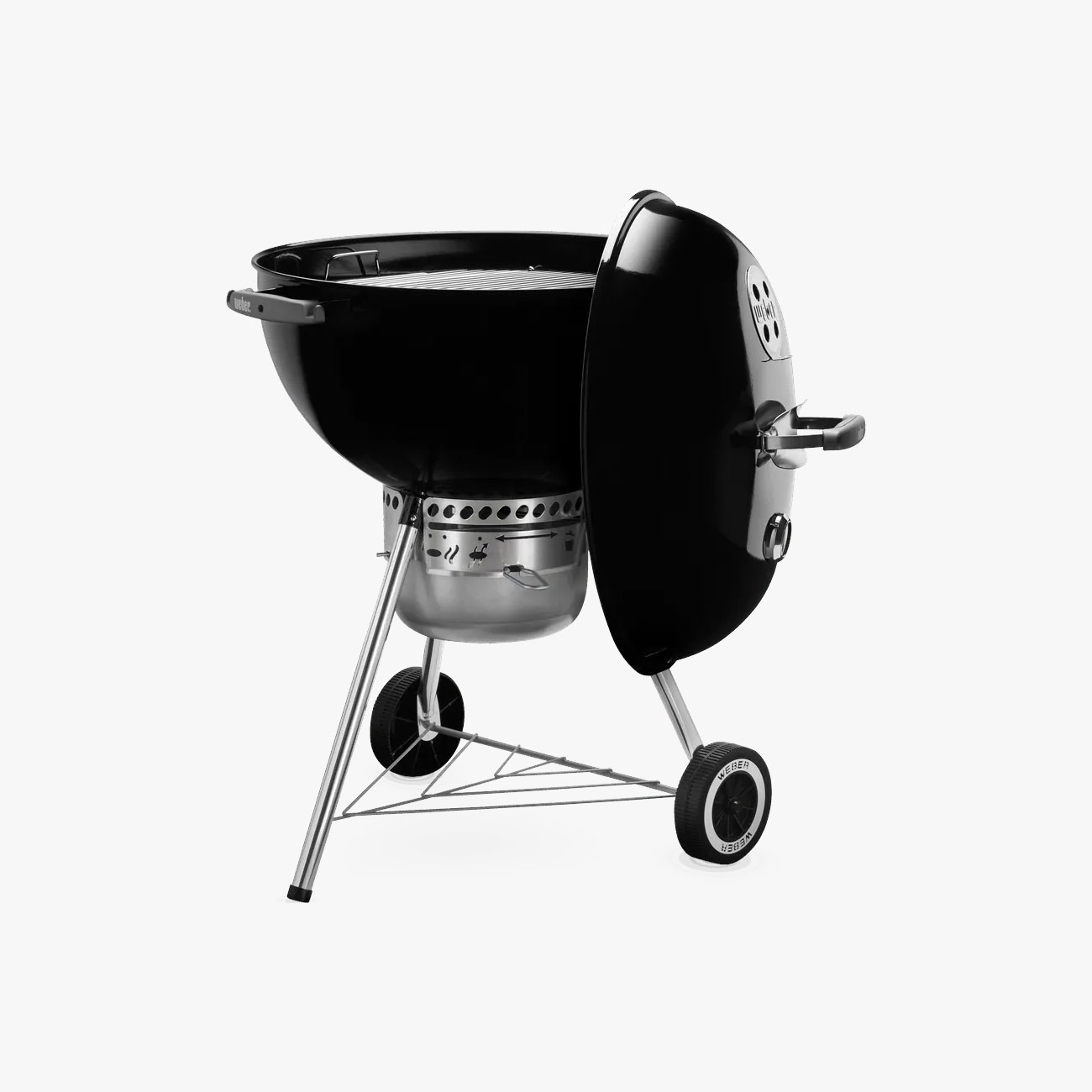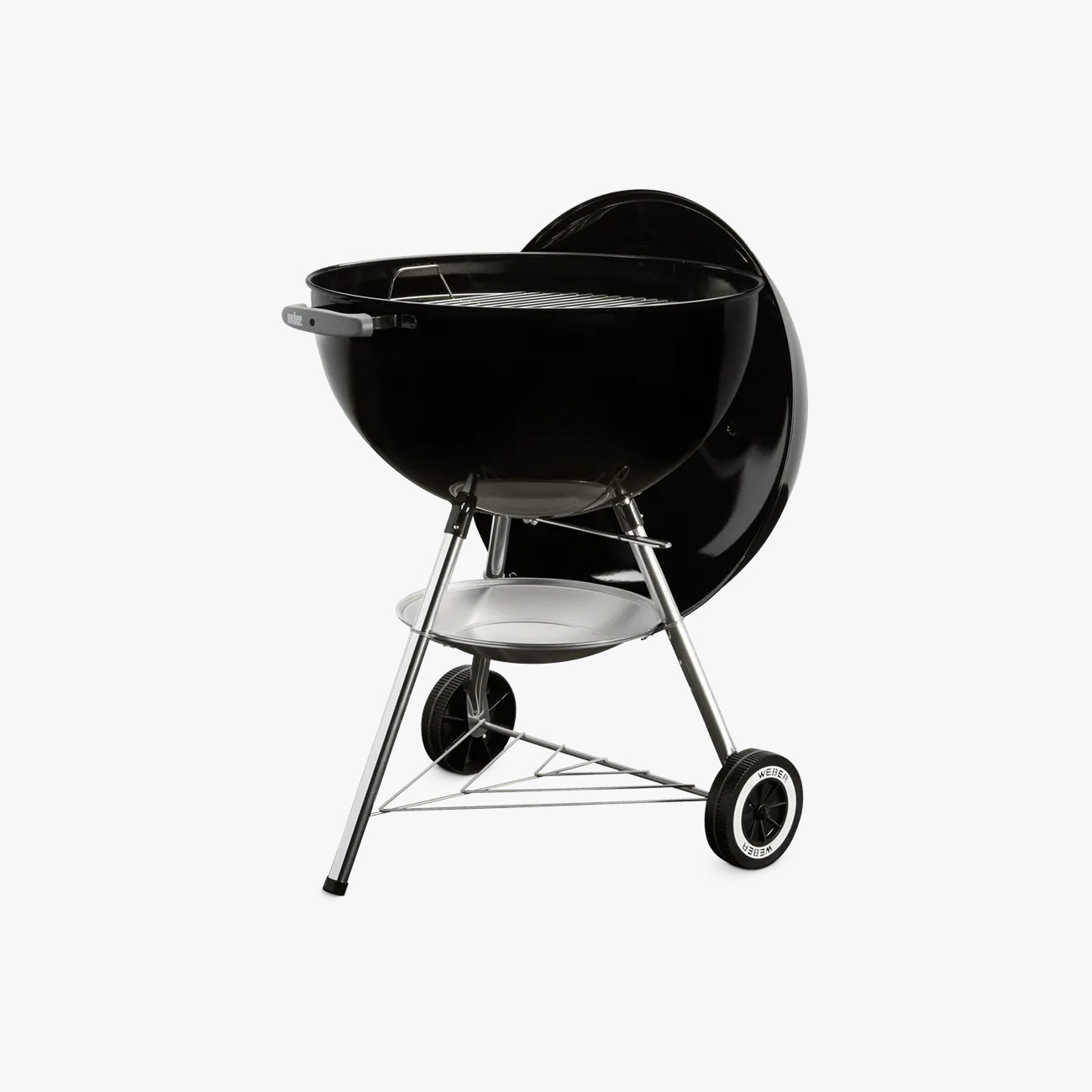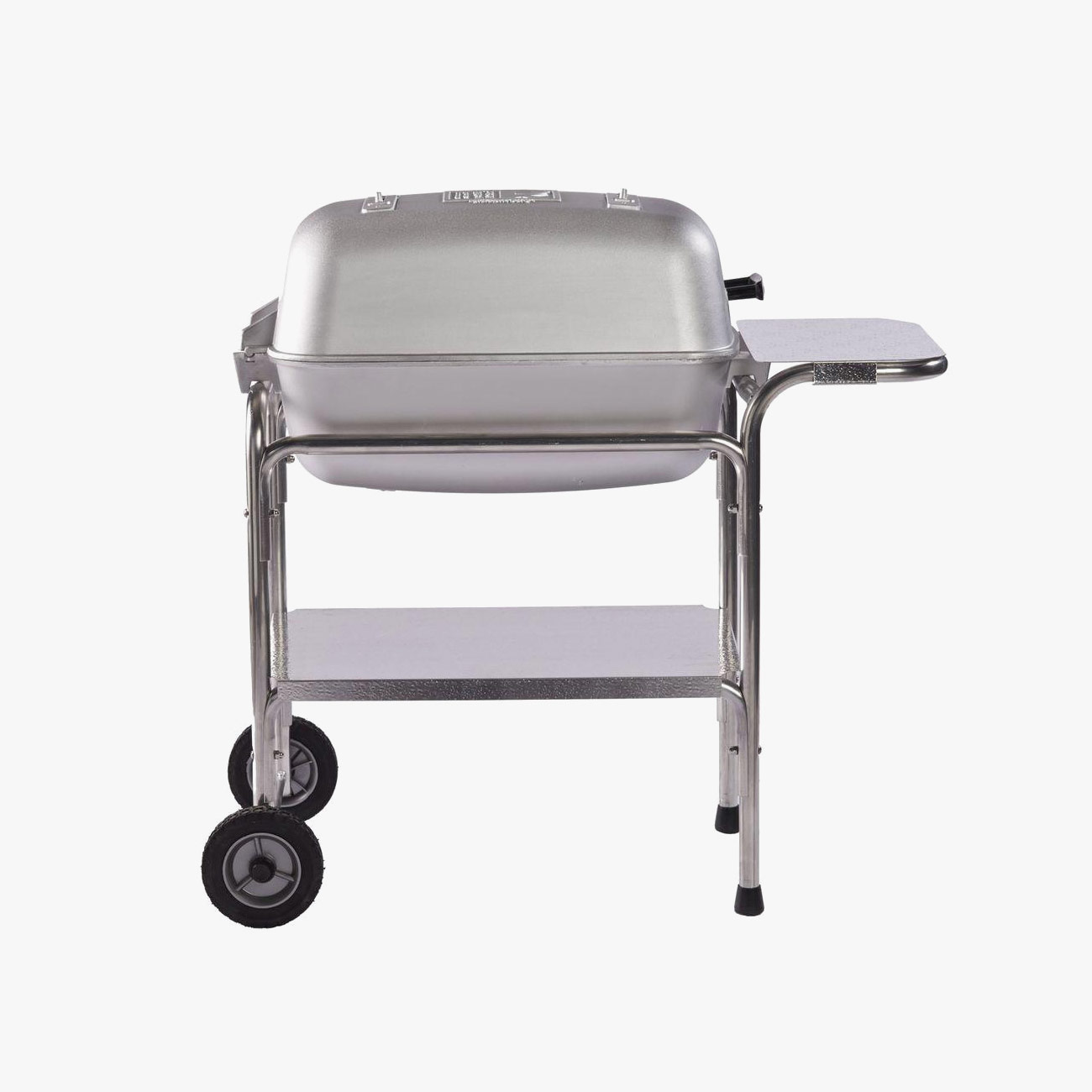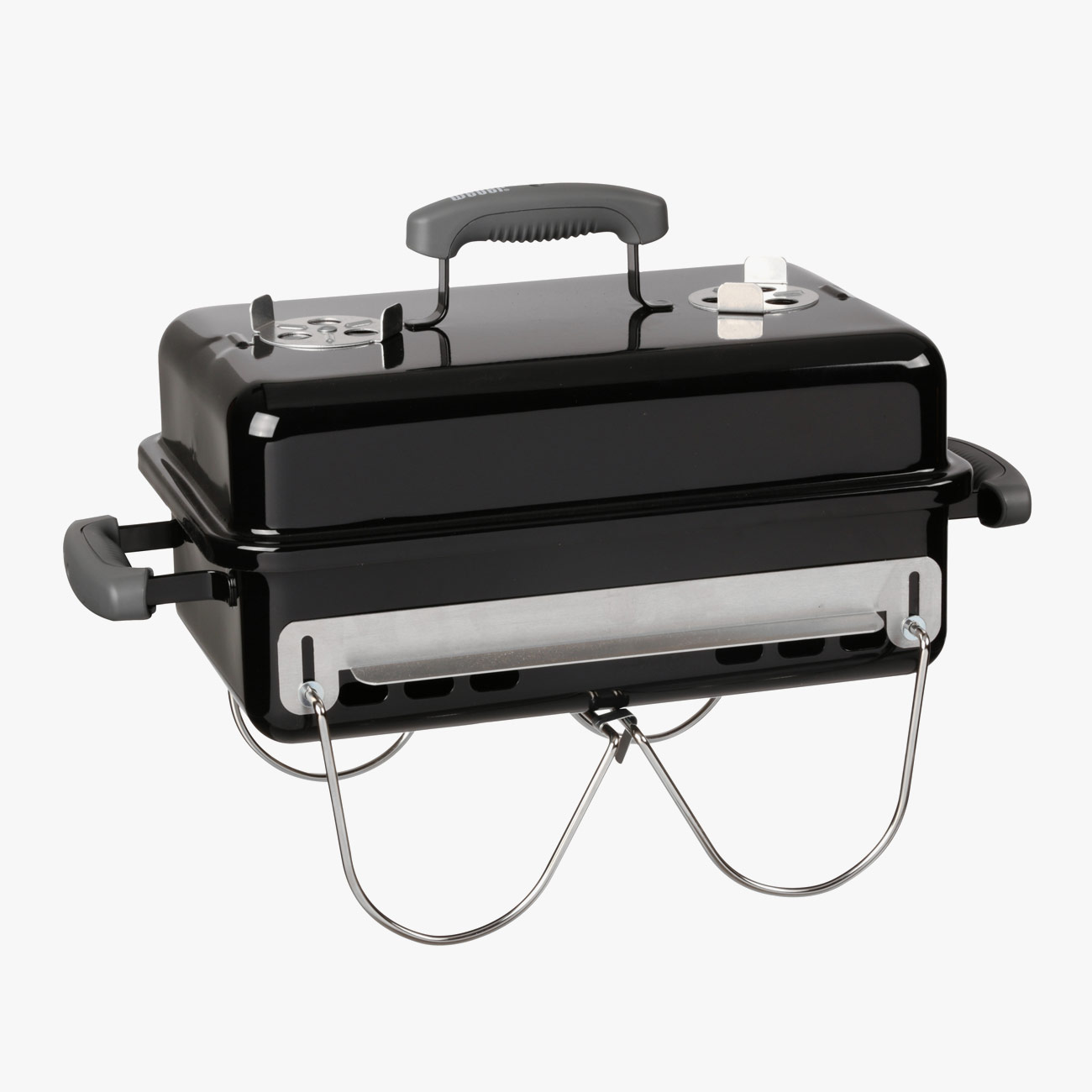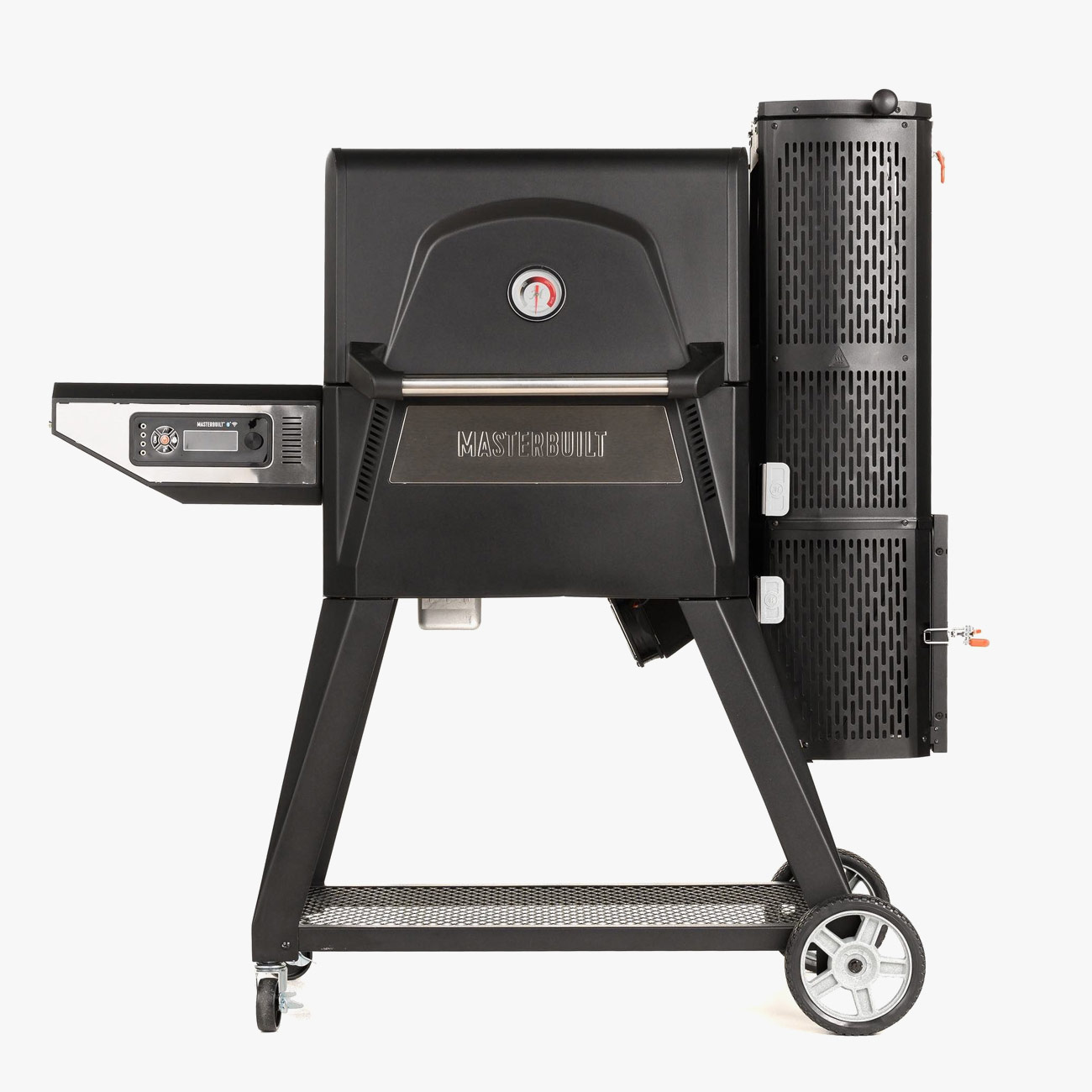This definitive guide to the best charcoal grills of 2020 explores everything you need to know to find a charcoal grill best suited to your needs, including features to look for, materials, looks and price.
Beyond BTUs, max temperatures and fuel cost, the fundamental difference between charcoal grills and its competitors is convenience. Charcoal grills are inconvenient in every way that a gas, pellet or electric grill is not. This is the fundamental appeal. In the same way many driving enthusiast prefer manuals to automatics, there is carnal satisfaction in direct control, higher failure rates and sky-high potential. Yes, charcoal grills can do things the others can’t, but it’s the no handlebars process that makes great. From the most iconic backyard toy of the 20th century to something called a Yoder Smoker, these are the best you can buy right now.
The Short List
Weber Original Kettle Premium Grill
Best Overall Charcoal Grill: When you talk about charcoal grilling, you start with Weber’s kettle. The brand continues to represent the ideal mix of performance and price. Its customary porcelain-enameled steel body is sturdy enough to lock heat in and light enough to tow around without throwing out your back. Its construction is such that moving parts, screws and levers are kept to a bare minimum, which means it lasts much, much longer than other grills under $200.
The Premium version of the original kettle upgrades the ash catch in such a way that, to me, makes the $55-or-so extra worth it. Another bonus of investing in Weber kettles is the vast collection of aftermarket accessories you can get for one.
Weber Original Kettle Grill
Best Cheap Charcoal Grill: Materials, manufacturing and brand legacy all considered, it’s shocking the original Weber is still this affordable. The 22-inch staple is made with the same enameled steel as the Premium version and offers the same 363-inch cooking space (between 15 and 20 burgers worth of space), but it lacks the easier to clean ash catch. It’s not a huge issue, given the competition for a charcoal grill of this size is mostly rinky dink Amazon brands that don’t have customer service lines, strong warranties or any real reputation. If you’re dead set on a cheap grill and go for something other than the Weber original you’re doing so in an effort to be different, not have a better grill.
The Original PK Grill & Smoker
Best Small Charcoal Grill, Best Charcoal Grill and Smoker: Let’s get this out of the way: almost any charcoal grill can be a smoker, too. It comes down to having enough space to create two-zone cooking areas (explained superbly by Amazing Ribs here). This is what PK (short for Portable Kitchen) grills are known for — they’re small enough to toss in the bed of a pickup with other tailgate gear, yet, thanks to four very smartly placed vents, functional enough to grill and smoke at high levels.
The PK grill is outfitted with vents on the top right, top left, bottom right and bottom left of the cast-aluminum grill body. When you want to sear steaks, chops or chicken, you open the fuel-side vents and let the fire rip. When you want to smoke ribs or a small pork butt, place the coals on one side of the grill and the meat on the opposite side of the grates. Then open the vent under the coals and over the meat — this feeds the fire and smokes the meat indirectly. The entire thing is rust-proof, too. (Read our review).
Weber Go-Anywhere Grill
Best Portable Charcoal Grill: The PK scissor-base grill is portable, in a sense; it folds up and fits in a big trunk well enough. But it’s not portable. You’re not lugging it to the park, the beach or on a day hike. For that task, you want another Weber.
The Go-Anywhere grill weighs 14.5 pounds, which is featherweight in charcoal grilling terms. It’s large enough for 6 to 8 burgers, two regular-sized steaks or one whole chicken. It is not a grill you’ll be able to effectively smoke or slow cook on consistently, but it offers a huge upgrade to camp dining. Because most of the places you’ll use this grill will necessitate packing light and thus not carrying a charcoal chimney, we recommend bringing a pack of lighter cubes with it wherever it goes.
Why Buy a Charcoal Grill?
Charcoal grills aren’t for everyone. These are the pros and cons of charcoal grilling.
Pros of Charcoal Grilling
Ultra high heat: other than commercial salamander burners (like this one), no grill type will reach the heat levels charcoal and wood-fired grills will. Expect maximum temperatures over 1,000 degrees Fahrenheit, reaching up to 1,250 depending on your setup.
Versatility: It gets hotter than hell, but it works just as well for low-and-slow cooks. When airflow is handled well and the fire is tended evenly, charcoal grills can hold steady temperature for days. Fuel Variety: unlike gas or electric (not so much pellet), charcoal grills can cook with affordable Kingsford coals, more premium lump coal, binchotan or even coconut shells.
Cons of Charcoal Grilling
Small learning curve: Learning how to properly stack coals, light a fire, hold a steady temperature and control airflow takes time.
A big mess: Expect your hands, your grill and everything in the general vicinity of the grill to have a slight tinge of charcoal dust for the foreseeable future.
Semi weather dependent: Where gas, pellet and electric grills can operate in windy and even rainy conditions, charcoal can struggle. The wind can choke out or puff up a fire to unmanageable levels.
Time sink: Lighting coals takes more time than clicking the go button on a gas grill. Cleaning the grill takes time. If you’re looking to grill multiple times a week, a nice gas grill may be a better option.
What to Look for in a Charcoal Grill
Materials Matter: Whether you’re shopping online or in-person, seek out construction information. Does the listing have two dozen bullets touting all the heavy-gauge stainless steel, cast aluminum and enameled iron (or steel)? That’s a good sign. If it’s not flexing its construction, it’s more likely to have rust spots, fail at retaining heat and generally come apart earlier than you’d want.
Beefy Warranties: Buying a grill that’s a few hundred dollars and it has a one-year parts warranty? Don’t buy it. Something that costs that much should be guaranteed, in part at least, for three to five years. Some of the grills on this guide come with lifetime part warranties.
Adjustable (and Customizable) Grates: Look for a wheel or lever that lets you move the grates or the coal bed up and down — preferably both. This allows for more cooking methods. As an added bonus, some companies offer upgraded grates (or there are aftermarket grates you can buy).
Vents! Vents! Vents!: In the making of a single meal, airflow determines quality more than great grates, coal quality and construction. It allows for you to feed a fire to sear like you want, keep a medium heat to roast a chicken or smoke ribs nice and slow. The more vents to play with, the better.
Delivery and Setup: This is a simple one. Some grills come fully assembled, others take a full day to set up. Look at this before shipping a 500-pound piece of metal to your house.
The Upgrades
Masterbuilt Gravity Series Grill
Masterbuilt’s charcoal take on a wood pellet grill is the most controversial charcoal grill on the list. Load coals in the hopper and play with the grill’s onboard computer — which controls temperature levels and air flow — to grill with precision without any experience. That functionality, which also enables the cook to go more hands-off (which means more time with the people you’re cooking for), is likely the future of grilling. The pain points are temperature maximum and construction. The former is significantly lower than your standard charcoal grill (just 700 degrees), and the latter is questionable at best, with some plastic and painted stainless steel that chips rather easily. Looking for something you can turn on in the morning and not come back to until dinnertime? This is it.
Broilmaster C3PK1 Charcoal Grill
Broilmaster is one of grilling’s old guards. Founded in 1966, the company has iterated its design into a unique, highly functional and ultra-durable charcoal grill. A cast-aluminum body was one of the founding principle which has lasted to today, where it is still the gold standard for even heat distribution and weather resistance. And though its grates can’t be cycled up or down, it does have a unique split-grate setup that allows for cooking nearer or further from the flame. The pull out ashtray and vent count are the icing on top.
Hasty Bake Legacy 131 Charcoal Grill
Lauded by professional chefs, Hasty Bake charcoal grills ride the line between commercial and residential use in their functionality and no-bullshit aesthetic. The company made its first grill — then called a charcoal oven — in 1948 and has been making them non-stop since. From a construction perspective, the grill is a beast. Loads of 18-gauge powder-coated stainless steel make up the body, and the grates are nickel-plated steel. Parts come with a 5-year warranty, too. A quirk: the grill has a ventless hood, which changes… a lot. Instead of smoke and heat flowing up through the coal bed and out the top of the grill, heat rises to the top of the lid, where it meets a heat deflector, which recirculates the heat. This means hotspots are a rarity, and creates what amounts to a charcoal convection oven.
Yoder Smoker Abilene
A 375-pound charcoal grill with more than 700 square inches of cooking space perfectly placed vents make the near perfect party grill. Removable cooking grates are standard fare, but being able to remove the charcoal grate is a huge help with cleaning a grill this size. One last thing: the wagon-style wheels are made of the same heavy-as-shit stainless steel as the grill body, meaning they won’t casually crack or break down like many others.
Napoleon Charcoal Professional Grill
The serial grill reviewers at Amazing Ribs said it best: “If you’re committed to charcoal, but envious of your neighbor’s shiny gasser, the Napoleon PRO605 may be the answer.”
Napoleon is primarily a gas grill maker, but its glossy stainless steel charcoal grill is exceptional, and it’s one of very few high-end charcoal grills that have that new look. Other than its highly durable build, the grill ticks all the boxes: variable coal bed height, sturdy grates and (relatively) easy-cleaning. Some will be fond of Napoleon’s staple “wave” grate design.
Everdure Hub
The new-ish Everdure brand is the brainchild of Michelin-starred UK chef Heston Blumenthal. Its Hub grill targets pain points in the charcoal grilling process and addresses them with features like electric charcoal ignition and porcelain covered grates that are easy to clean. It’s also got a built in rotiserrie over the grates, which few charcoal grills offer as a standard. This is the grill you get to show off a bit, and keeps your hands clean. A downside: compared to most brands in this guide, Everdure has very few stockists, which means it may be tough to get hands-on with one before dropping two grand.



